留学加拿大环境工程和石油工程的选择(美国留学环境工程专业个人陈述范文2篇)
2024-01-25 04:40:32 | 留学建涯
本文目录一览:
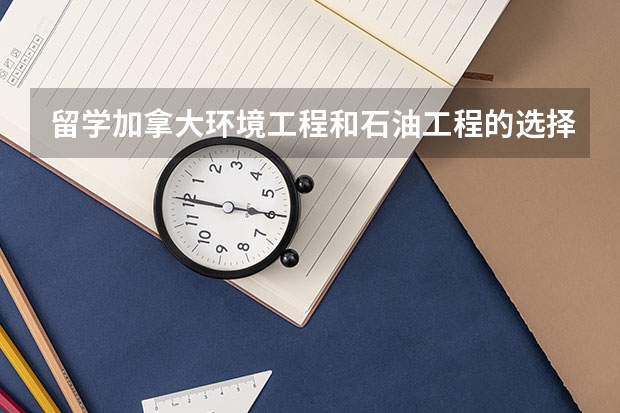
留学加拿大环境工程和石油工程的选择
Civil and Environmental Engineering;(土木与环境工程)加拿大的土木工程专业按其课程设置和专业性质大致可以分为以下四类:
1、 岩土工程 :在工程建设中有关岩石或土的利用、整治或改造的科学技术。
结构工程学是用力学的方法来分析建筑物(如:房屋、桥梁、水坝等)和构筑物(如:挡土墙、烟囱、构架等)在各种荷载作用下的内力和变形,通过控制结构的内力和变形,达到结构在施工和使用过程中保证一定安全可靠度的目的
2、 市政工程 :
市政工程(municipal engineering)是指市政设施建设工程。市政设施是指在城市区、镇(乡)规划建设范围内设置、基于政府责任和义务为居民提供有偿或无偿公共产品和服务的各种建筑物、构筑物、设备等。市政工程一般是属于国家的基础建设,是指城市建设中的各种公共交通设施、给水、排水、燃气、城市防洪、环境卫生及照明等基础设施建设是城市生存和发展必不可少的物质基础。是提高人民生活水平和对外开放的基本条件。
3、 供热、供燃气、通风及空调工程
研究为满足人类生产和生活要求所需的各种人工环境。其内容包括民用与工业建筑、运载工具及人工气候室中的温湿度、清洁度及空气质量的控制,为实现此环境控制的采暖通风和空调系统,与之相应的冷热源及能源转换设备,以及燃气、蒸汽与冷热水输送系统。本专业的中心任务是在尽可能减少对常规能源的消耗,降低对大气环境污染的基础上,为人类提供各种最适宜的人工环境,促进经济建设和人民生活的可持续发展。
4、 防灾减灾工程及防护工程
防灾减灾工程及防护工程学科是土木工程学科中的边缘学科,其核心内容为地震工程、抗风工程、抗火工程和抗爆工程等。
5、 桥梁与隧道工程
交通建设在国家经济发展中起着十分重要的先行作用,在公路、铁路和城市交通建设中,为跨越江河、深谷和海峡或穿越山岭和水底都需要建造各种桥梁和隧道等结构构造物。
工作不会因为你是女生就会有影响的,而且石油专业在阿尔伯塔省是很受欢迎的专业,就业率很高,薪资也不错,阿尔伯塔省的移民条件会低一点

美国留学环境工程专业个人陈述范文2篇
申请美国留学的学生越来越多,那么美国留学环境工程专业的个人陈述该怎么写呢?这是很多留学生比较感兴趣的话题。和一起来看看吧!下面是我整理的相关资讯,欢迎阅读。
美国留学环境工程专业个人陈述范文2篇
范文一
There was never any doubt that I would pick Environmental Science.
Studying at sixth form has made me realise that my favourite parts of each subject are based on the processes and sustainability of the environment. For my Product Design coursework, I was redesigning manufactured goods to be ‘greener’; making a lamp that was 80% more efficient and could also be broken down to be recycled. I prevailed in the organic module of AS Chemistry in which I learnt about the use of fossil fuels and pollutants. And in Maths, I concluded that the statistics module was the most rewarding because it showed me how the subject is integrated into almost everything; I was using methods from my statistics class to help me with my Geography coursework, in which I surveyed a river environment and how humans influence it – I took pleasure in wading through a river and the great sense of fulfilment to draw a conclusion from information I had gathered and processed myself.
I feel that this course will satisfy my curiosity about the world around us, and hope it will lead me to a career that aims to find ways to use the world’s resources in a sustainable way.
I have not missed an opportunity to get involved with extra-curricular activities; as I was walking through school to head home after some particular activities, I was often greeted by teachers making statements such as, ‘Are you still here?’ but I kept coming back.
Being part of every girl’s team available, and captaining some select games, meant that I set aside a lot of time to the cause; but this was no chore, I love the social side of sports because everyone involved has so much enthusiasm, which they portray in such an energetic manner. I joined clubs out of school, representing the South Bucks hockey team in the Thames Valley games and playing in an under sixteen’s netball club let me meet many new people that I shared a common interest with. I also became part of a non-competitive hockey club for older hockey players, where the training was more vigorous and my team mates were a lot wiser – I often had to decline invitations to the pub, purely because I was too young - but the harder training routines improved my self discipline that lead me to having new skills.
For games such as netball and rounders it is essential to cooperate and follow instructions; you have to play your part in the game, doing this has not only taught me how to be part of a team, but how to lead one too. I am now part of the sports council, representing the sixth-form, we are currently working to encourage younger pupils to attend after school sports clubs and are organising a sports day for year seven. I also represent sixth form in the school council where we discuss how to make school a better environment for everybody; the latest proposal was to introduce paper recycling.
My school holds a summer awards evening every year for the lower school, I acquired awards for my work in various subjects and one for service, these made me feel like quite the specialist and encouraged me to put more effort in and lend a hand to others. I was made a prefect in year eleven and am now a senior student, I was very eager to help in the smooth running of the school to give back a little of what I have been given in extra-curricular time and resources. Last year I helped out in a year nine maths class once a week, I felt a sense of satisfaction when students were able to use concepts that I had explained to them. Also last year, when GCSEs were over, I started to teach myself guitar. Starting off, it took self-motivation to keep on learning as things got harder, and fingerprints started to wear off, but now I am part of a band and I know that it was undoubtedly worth the effort. 留学建涯
I have always loved learning new fields of knowledge and I am looking forward to exploring them in more depth at a higher level. I see university as an opportunity to utilise better facilities and expertise, and I understand that I must contribute all I can and rise to all the challenges put to me.
范文二
The tap water I drank for two years in England holds a hint of chlorine,
nevertheless, drinkable; its Swiss counterpart, crystal-clear and tastes divine. I have inhaled voraciously the air in Pullman, Washington, along with its scent of ripening wheat and temperate forests. I have swum into the Mediterranean Sea straight from the Barcelonata beach ten minutes away from downtown Barcelona. All the while travelling and studying aboard, I think about my home, China, about how none of these things can be done there. And the thought pains me.
Becoming an Environmental Engineer is not a mere whim resulted from my concerns for China’s pollution – it became a determination, when I spent a fruitful summer at Washington State University as a research student in Laboratory for Atmospheric Research. Under the guidance of Professor Serena Chung, Professor Brian Lamb and a doctoral student Rodrigo Gonzalez-Abraham, I conducted an analysis on the effect of wildfire
atmospheric emissions on regional air quality, using the current and future year simulations output by the WRF-SMOKE-CMAQ modeling framework. I discovered that wildfires account mainly for the particulate matters in the air, and that the increase in the precipitation in the future is likely to be responsible for a 60%-80% decrease in particulate matter’s concentrations. Not only have I improved my programming skill, data processing skill and the ability to
approach a task through my project, but also gained knowledge in the field of air monitoring and control through a series of “crash courses” equivalent to classes that an Environmental Engineering undergraduate would take. I
become enticed by the complexity and the interdisciplinarity of environmental modeling, and reaffirmed Environmental Engineering as my career path. At the time when several faculty members from the department were leaving for Tianjin, China for a project, and joked about the possibility of their accurate measuringequipments malfunctioning when operating in the megacity plagued by pollution, my heart sank, and instantly I knew that my best career option is to help converting the terrible situation.
As a Physics major and a Math minor, I make more efforts than a summer research to edge my way into Environmental Engineering. For senior year, I am taking a course entitled Water Quality and another one on Environmental Systems at Swarthmore College. In the former, I will work on a group project that aims to improve the pollution model of a local creek, developed by Professor AuthurMcGarity using Storm Water Management Model. If my schedule allows, the summer after my graduation will include taking basic engineering summer courses in preparation for graduate school. In addition, I
will be spending my fall break this year working at California Air Resources Board and learning how research results influence public policy making. In my one-month winter break, I will intern in the Bio-fuel research sector at the ENN Company, a Chinese energy company that plays a leading role in the development of oil extraction from algae cultures.
It took me a while to figure out that I want to use my specialty in the real world as an engineer. This is mainly because I am also fascinated with theories and abstract concepts that Physics and Mathematics offer. Immersed in the
atmosphere of a liberal arts college, I embrace the idea that a kid should study what fascinates him/her the most in college. Armed with enthusiasm, I did a month-long Theoretical Physics research during the summer of freshman year, on the question of whether our universe has a “preferred” handedness and whether it is detectable in the large-angle anisotropy of Cosmic Background Radiation. As it turns out, it takes more than a month for a freshman to tackle Theoretical Physics, for I spent most of the time teaching myself General Relativity through a thick textbook written by John Wheeler, instead of doing anything remotely original. While I enjoy leaving the research with a mindful of abstract ideas about the origin of the universe, I settled with myself on the contention of whether to pursue pure theories throughout my life.
The decision is no. As a result, my second research in Physics, the one started in the fall of 2009 and evolves into my senior project, differs significantly from the first one. The project in the Non-linear Physics Lab at Haverford College looks at the behaviors of swimming microorganisms in a quasi-2D fluid. The project was especially challenging at the beginning, because of the universally known fact that you cannot let a Physicist take care of living organisms. I had to figure out a systematic procedure to culture algae cells, to keep them motile, to add fluorescent tracers without disturbing their normal metabolism, and to take accurate measurements. Looking back at those days, I realized that the most valuable lesson I have learned is neither the lab procedures nor the
modeling skill, but an effective approach to a new project and the step-by-step elimination of experimental difficulties. This was also a time during which I encountered frustrations and joys down the path of an objective research, and tried to handle them professionally. They say doing research is about how you do it, not what you do. And I hope to incorporate my Physics research experiences and perspectives into the future research in Environmental Engineering.
As my transcript indicates, I intend to finish my undergraduate in three years. Although Bryn Mawr and Haverford equip me with a broad spectrum of
knowledge in Math, Physics, Economics and Art History, the absence of an Engineering department results in my eagerness to move on to a
comprehensive university with more Engineering resources and peers, a university like Columbia.
It is impossible not to be impressed by the Carbon Sequestration research going on in Columbia for someone like me who reads every issue of Scientific American. Although I may lack the knowledge in Engineering Design, I am
confident to enter this new field under the guidance of Professor Klaus Lackner; more importantly, I have already developed a strong passion for Carbon Sequestration through reading various literatures. Also, Professor
UpmanuLall’s specialty appeals to me because of his projects related to
hydro-climate modeling and policy-making tools. Having visited SEAS and the department twice, I fell in love with the department’s friendly atmosphere and its “international flavor”. I would like to believe that I will be an asset to the department in return. My education background spans from China, Oxford to Philadelphia; from fifty kids per classroom in middle school, ten teenagers from five different countries per classroom in high school, to twenty brilliant young women and no men per classroom in college (see resume). I find equally great pleasure in two seemingly contrary activities: scientific research and
philanthropy. It is my career goal to become a world citizen who, on one hand, savors the withdrawal of research, and on the other hand, advocates for a better environment when not at the desk. I am to be an Environmental
Engineer, for my own pleasure, for the sake of my homeland, and for the sake of this globe we are all living in. And Columbia holds the same belief.
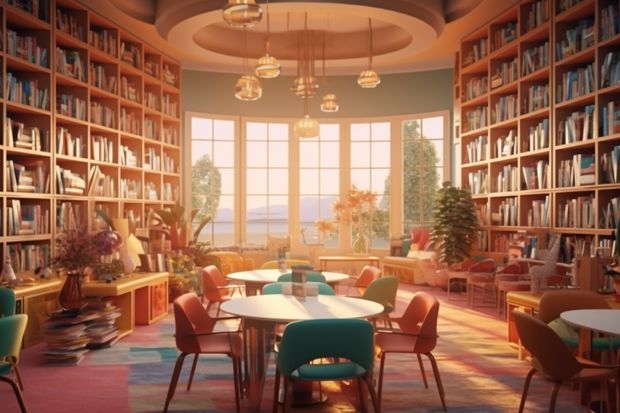
环境工程出国留学问题~
发达国家的环境工程专业都非常的不错,值得推荐有:美国,英国,澳大利亚,日本,新西兰等.能够去哪个国家还需要根据你的实际情况具体的分析,比如你的经济水平,成绩,语言水平等等.最适合留学的国家,这个没有标准的答案,仁者见仁,智者见智,每个人的标准都不一样,可以从以下几个方面考虑:
1:留学费用
家庭经济优裕,可以考虑美国,英国,澳大利亚等留学热门国家,费用在20万左右/年.工薪家庭可以考虑法国,德国,北欧,韩国等,6-8万左右/年等等
2:选择的专业
各个国家都有见长的专业,比如法国的艺术设计类很好,意大利的服装设计很好,西班牙的音乐很好,德国的理工科非常好,美国云集世界众多优秀院校和专业等等
3:移民的倾向
比如加拿大,澳大利亚,新加坡,新西兰等移民国家,留学后非常方便以后的移民等
4:生活环境
比如加拿大,俄罗斯的气候会比较寒冷,澳大利亚,新西兰气候会比较温暖等等
5;个人成绩
各个国家的入学条件要求不一样,比如美国,相申请好的学校,读本科要考托福+SAT,读硕士要考托福+GRE/GMAT;去英国,澳大利亚等国家必须要有雅思成绩,去新西兰,马来西亚等没有雅思成绩同样可以申请(过去先读语言)等等。 以上就是留学建涯小编整理的内容,想要了解更多相关资讯内容敬请关注留学建涯。
- 护理可以转哪些专业?
- 留学加拿大环境工程和石油工程的选择(美国留学环境工程专业个人陈述范文2篇)
- 护理专业是现代医学专业中很吃香的专业,新西兰读护理留学学校都有哪些?
- 长安大学优势专业介绍(2)(长安大学最好的专业)
- 为什么越来越多的人出国留学英语作文
- 美国留学申请会计专业五大要求 加拿大各大学会计专业留学申请攻略是怎样的
- 当完兵可以申请留学吗?要多久?
- 河北资源环境职业技术学院能出国留学吗
- 在美国从事物理治疗的入门要求是什么?
- 南通大学专业排名最好的专业有哪些
- 一个德语专科生,想去德国留学,但是德国不承认专科学历,而且专升本留学德国也很难,有什么建议吗?
- 申请留学时所计算的GPA是不是只需计算学位课程的GPA呢?
-
 加拿大留学选择专业 申请去加拿大留学选择哪些专业比较好
加拿大留学选择专业 申请去加拿大留学选择哪些专业比较好2023-10-16 04:47:55
-
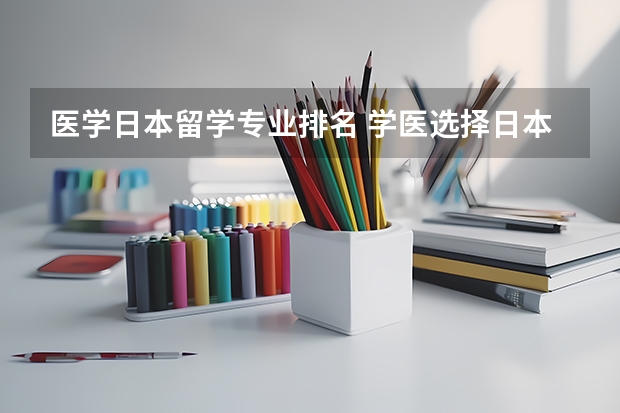 医学日本留学专业排名 学医选择日本留学好不好?有什么专业推荐?
医学日本留学专业排名 学医选择日本留学好不好?有什么专业推荐?2023-09-07 05:27:56
-
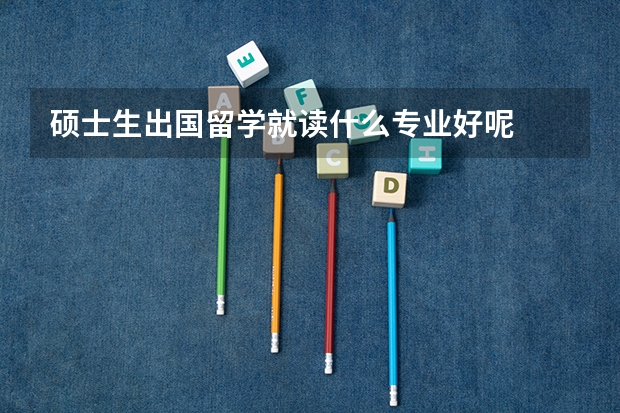 硕士生出国留学就读什么专业好呢
硕士生出国留学就读什么专业好呢2023-12-16 20:53:54
-
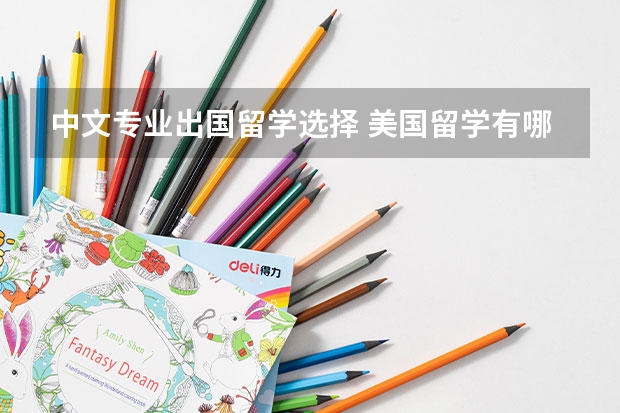 中文专业出国留学选择 美国留学有哪些专业适合对外汉语专业学生?
中文专业出国留学选择 美国留学有哪些专业适合对外汉语专业学生?2023-10-15 10:16:19
-
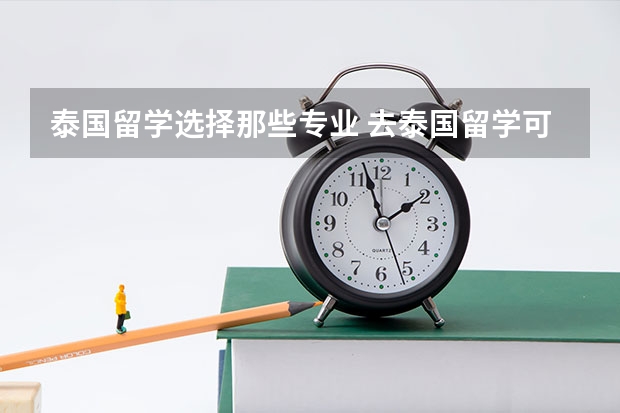 泰国留学选择那些专业 去泰国留学可以选择什么专业与院校
泰国留学选择那些专业 去泰国留学可以选择什么专业与院校2023-10-15 02:30:20
-
 测控跨专业考研可以考哪个
测控跨专业考研可以考哪个2023-12-15 09:25:23